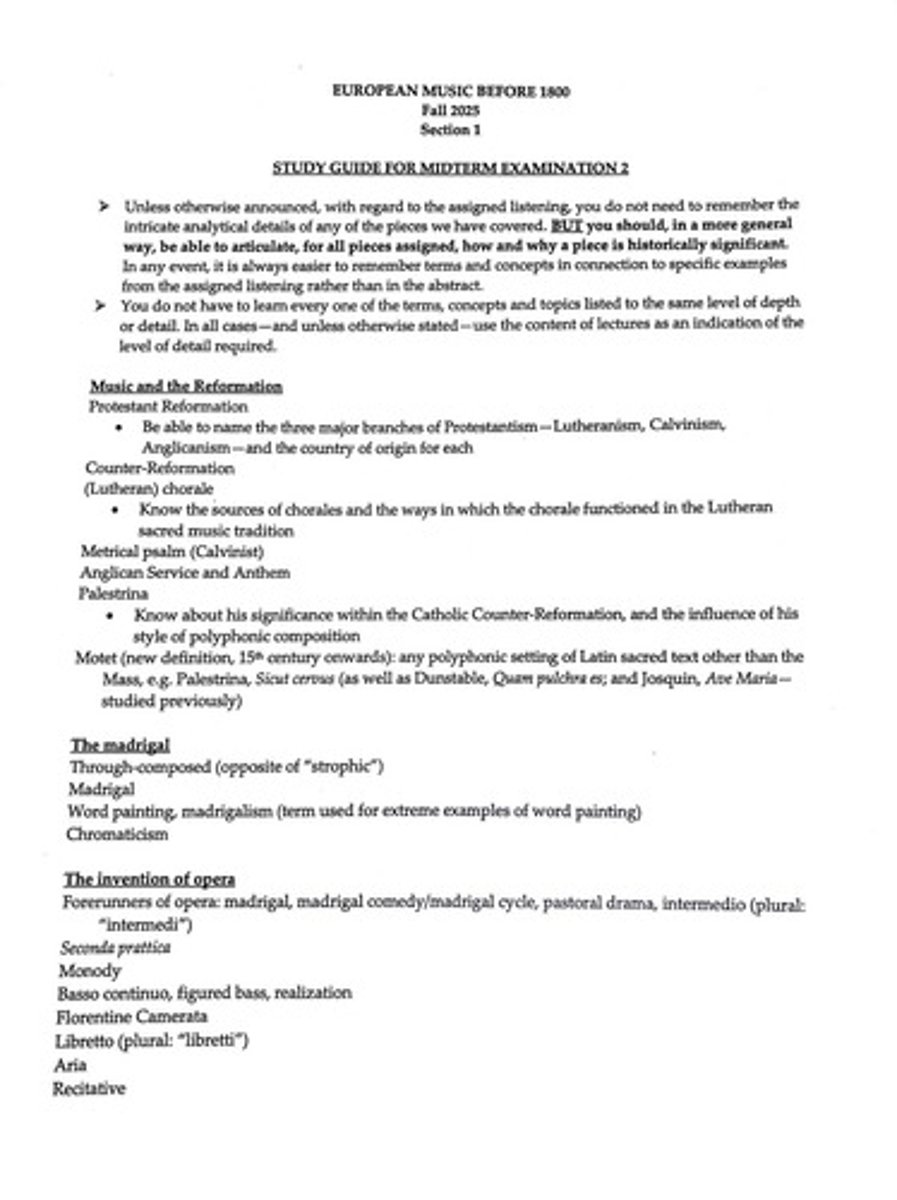European Music Before 1800: Key Concepts and Historical Significance
1/24
There's no tags or description
Looks like no tags are added yet.
Name | Mastery | Learn | Test | Matching | Spaced |
|---|
No study sessions yet.
25 Terms
Protestant Reformation
Be able to name the three major branches of Protestantism-Lutheranism, Calvinism, Anglicanism-and the country of origin for each.

Counter-Reformation
Know about the significance of Palestrina within the Catholic Counter-Reformation, and the influence of his style of polyphonic composition.
(Lutheran) chorale
Know the sources of chorales and the ways in which the chorale functioned in the Lutheran sacred music tradition.
Metrical psalm (Calvinist)
A type of psalm that is set to music in a metrical form.
Anglican Service and Anthem
A form of music used in the Anglican Church service.
Motet
Any polyphonic setting of Latin sacred text other than the Mass, e.g. Palestrina, Sicut cervus.
The madrigal
A secular vocal music composition that originated from Italy.
Through-composed
A musical form that is composed continuously, without repeating sections.
Word painting
A musical technique that reflects the literal meaning of a song's lyrics.
Chromaticism
The use of notes outside the standard scale, often creating tension.
Forerunners of opera
Madrigal, madrigal comedy/madrigal cycle, pastoral drama, intermedio.
Seconda prattica
A style of music that emphasizes the text over the music.
Monody
A style of music featuring a single melodic line with instrumental accompaniment.
Basso continuo
A form of musical accompaniment used in the Baroque period, consisting of a bass line and harmonies.
Florentine Camerata
A group of musicians and intellectuals in Florence who discussed and developed early opera.
Libretto
The text of an opera or other long vocal work.
Aria
A solo vocal piece with instrumental accompaniment, often found in operas.
Recitative
A style of delivery in which a singer is allowed to adopt the rhythms of ordinary speech.
Sinfonia
An orchestral piece typically used as an introduction to an opera or cantata.
Ritornello
A recurring passage in Baroque music for orchestra or chorus.
(Solo) cantata
A vocal composition with an instrumental accompaniment, typically in several movements.
Melodic ornamentation
The addition of decorative notes to a melody.
Music printing
The process of producing music in printed form, significant for its role in disseminating music.
Dance suite
A collection of dances, typically in the same key, that are performed in sequence.
Functional tonality
A system of organizing pitches and chords around a tonic, or home note.